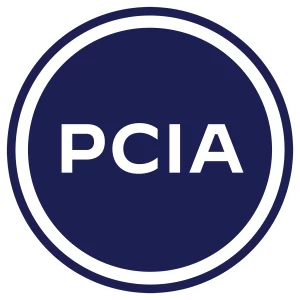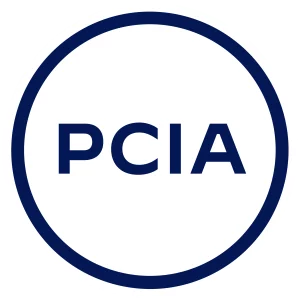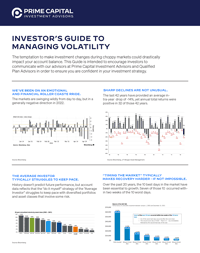Running out of money is every retiree’s worst nightmare, and unfortunately it can happen if you don’t have an effective retirement plan in place. It’s time to face your fears. What you don’t know can hurt you, especially in a roller-coaster economy like the one we are experiencing now. It’s never too late to start planning for retirement so that you can avoid these eight common mistakes that can lead to retirement failure.
Mistake #1: Taking All Your Money Out of Stocks
Market volatility is scary for everyone; it can be even more so for retirees. While there’s truth to the maxim that retirees should make sure their portfolios contain enough income-generating assets, leaping completely out of stocks because of market lurches is never a good idea.
Investors have seen strong gains in recent years, as well as some steep declines. While as a general rule of thumb your portfolio should become more conservative as you get older and your time horizon to retirement shortens, retirement experts say you’ll likely need at least a portion of your savings in stocks throughout retirement for diversification and growth potential.
Mistake #2: Investing Too Much Money in Stocks
When it comes retirement “rules,” the old adage is that investors should move to 60% stocks as they approach retirement, trimming back to 40%-50% stocks in early retirement, then moving to 20%-30% later on in retirement.
In reality, your portfolio should be customized to both your risk tolerance as well as your age, and your investments should be well-diversified and balanced.
Diversification means investing beyond stocks. For steady sources of retirement income, your financial advisor should consider U.S. Treasurys, municipal bonds, corporate bonds, real-estate, indexed annuities and many other strategies when building your retirement portfolio.
Mistake #3: Underestimating Your Life Expectancy
Everyone wants to live a long, happy life. Keeping the “happy” in there depends at least in part on having enough money. Most experts these days agree that you should plan for a retirement that lasts 30 years. In fact, workers polled several years ago by Transamerica said they expect to live to age 90.
Life expectancy and longevity beg the question: are you saving enough? In addition to saving more, other things you can do to extend your retirement resources include downsizing your home, moving, or retiring to a cheaper state or city. Another option to consider is to lock in additional income for life from a deferred income annuity or qualified longevity annuity contract (QLAC).
Mistake #4: Spending Too Much
We all spend too much—before and probably during retirement. Studies from the Employee Benefit Research Institute found that 46% of retired households spent more annually in the first two years of retirement than they did just before retiring.
This makes sense, because you will probably want to spend more when you first retire simply because you will have a lot more free time and want to enjoy it. Plan accordingly, and have a realistic budget in place.
Mistake #5: Relying on a Single Source of Income
As many as 94% of retirees and 86% of workers cite Social Security as their primary source of income in retirement, according to the Retirement Confidence Survey conducted by the Employee Benefit Research Institute in January of 2023. At the same time, many fear Social Security will be reduced or cease to exist by the time they retire. (It probably won’t.)
However, Social Security alone probably won’t be enough to see you comfortably through retirement. Having multiple income streams is the smartest play for retirees.
Mistake #6: Getting Sick
It’s no secret that our health deteriorates as we get older. It’s also no secret that health care is expensive. A report from the Employee Benefit Research Institute shows a 65- year-old man would need to save $142,000 to have a 90% chance of affording his health-care expenses in retirement that aren’t covered by Medicare or private insurance. The news is worse for a 65-year-old woman, who would need $159,000.*
Be sure you’re doing all you can to cut health-care costs in retirement by considering supplemental Medigap and Medicare Advantage plans and reviewing your options annually.
*NOTE: These costs exclude long-term care. Should you or a loved one need long-term care, costs skyrocket. According to Genworth, the median cost for adult day health care in the U.S. is $1,690 a month; for a private room in a nursing home, it costs a median of $9,034 a month.
Mistake #7: Bankrolling the Kids or Grandkids
It’s a natural part of raising a family to want to be helpful. Of course you’d like to give your children and grandchildren a leg up by contributing to a down payment on their first home or helping them with tuition bills. But you can’t be the Bank of Mom & Dad forever, particularly if it puts your own financial security at risk.
Mistake #8: Having No Emergency Savings
Building emergency savings isn’t just for wage earners. A single home or auto repair (for instance, say you need to replace your roof or get a new transmission) can strike a devastating blow to the budgets of fixed-income retirees who don’t have money set aside for just such calamities. Adequate emergency savings can save your retirement, so make sure emergency funds are a part of your retirement plan.
Jason Noble, CFP®, RICP® holds both CERTIFIED FINANCIAL PLANNER™ and Retirement Income Certified Professional® designations which he obtained in order to help clients with retirement. Named number five out of the Top 100 Solo Advisors to Watch in 2023 by AdvisorHub, Jason is a fee-based financial advisor and he welcomes the chance to discuss your retirement plan. Please call us at (843) 743-2926.
Sources:
https://www.ebri.org/docs/default-source/rcs/2022-rcs/rcs_22-fs-2.pdf
https://www.genworth.com/aging-and-you/finances/cost-of-care.html/
This article is provided for general information only and is not to be construed as financial or tax advice. It is recommended that you work with your financial advisor, tax professional and/or attorneys when tax planning.
Advisory products and services offered by Investment Adviser Representatives through Prime Capital Investment Advisors, LLC (“PCIA”), a federally registered investment adviser. PCIA: 6201 College Blvd. Suite #150, Overland Park, KS 66211. PCIA doing business as Prime Capital Wealth Management (“PCWM”) and Qualified Plan Advisors (“QPA”).
100923016 MAH





